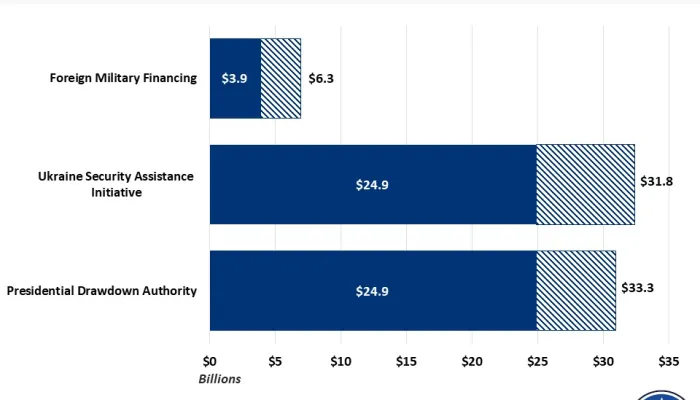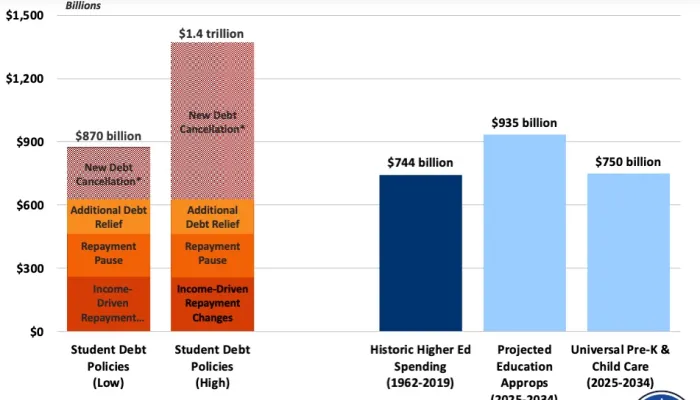Repairing How the Budget Treats the Highway Trust Fund
In our recently released plan, The Road to Sustainable Highway Spending, we propose a variety of measures to support the Highway Trust Fund (HTF), including providing fully offset funding for previous commitments, raising the gas tax, making sure we spend within our means in the future, and creating a "fast track" plan for tax reform to provide alternative financing. Additionally, we propose a few new reforms that will fix the inconsistency within the budget process that effectively exempts highway spending from budget discipline.
As we've explained before, the budget has a hybrid system for the HTF that treats contract authority (akin to budget authority in this case) as mandatory spending while treating outlays as discretionary spending. This nuance allows increased HTF spending to bypass both the Budget Control Act (BCA) caps on discretionary budget authority and pay-as-you-go (PAYGO) rules on mandatory outlays, permitting Congress to approve additional infrastructure investment without providing the means to pay for it. In addition, under existing budget rules, the Congressional Budget Office is required to assume that highway spending continues at inflation-adjusted levels in the baseline, even after the trust fund is depleted. As a result, Congress can enact legislation increasing spending for highways without increasing revenues and can make general revenue transfers to cover the inevitable shortfalls in the trust fund without paying for the added costs.
The good news is that the House has taken one step toward fiscal responsibility by enacting a rule that scores general revenue transfers as a cost that needs to be offset. However, the hybrid budget treatment leaves it as a very tempting option to fund the HTF without offsets or with gimmicks. (For more information on this, see Box 1 of our paper Trust or Bust).
Fortunately, we have a few further recommendations that would solve this problem by tightening budgetary enforcement:
- Classify contract authority and outlays in the same area of the budget: Classifying both contract authority and outlays for highway spending as either entirely mandatory spending or entirely discretionary spending strengthens the commitment to pay for our obligations. While the Simpson-Bowles plan and the President's budget recommend classifying both as mandatory spending, classifying both as discretionary spending would achieve the same goal. Classifying both as mandatory spending would make them subject to PAYGO rules, requiring Congress to increase HTF revenues or cut other spending in order to increase highway spending. Classifying both as discretionary spending (while adjusting discretionary spending caps to reflect HTF revenues) would require any highway spending in excess of HTF revenues to compete with other discretionary spending programs within the adjusted BCA caps. Either way, highway spending would be subject to greater discipline than it is today.
- Count general revenue transfers to the trust fund as new spending: Under current law, HTF spending is limited to the revenues coming into it and any balance available in the trust fund. As a result, transfers into the trust fund increase funds available and thus the amount of spending allowed. Just as the House rule proposes, general revenue transfers to the trust fund should be scored as new spending that needs to be offset by spending cuts or revenues elsewhere in the budget. Likewise, the increase in HTF spending that would be allowed as a result of the revenue transfer should be scored as a cost rather than as new HTF revenue. This will prevent Congress from double-counting revenues used to finance highway spending to offsets tax cuts or spending increases elsewhere in the budget.
- Limit new contract authority to prior year income: As we propose in The Road to Sustainable Highway Spending, limiting the ability to make new commitments to the previous year's income links taxes and spending. This would encourage lawmakers to consider both levels at the same time and make the tough decisions on the appropriate level of spending and whether it would require additional revenue to fund it. It would also prevent the need for repeated general revenue transfers to cover obligations that have already been made, and it would force lawmakers to provide sufficient revenues in advance to cover desired spending.
The Road to Sustainable Highway Spending recommends these changes as part of a comprehensive long-term plan for HTF financing; however, if Congress ends up enacting another temporary HTF funding patch, including these reforms would impose discipline on highway spending and increase pressure on Congress to enact a long-term solution without the opportunity to use gimmicks. As the transportation debate continues to unfold, we hope that policymakers take advantage of this opportunity by paying for the proposals that they wish to enact and putting in place reforms which provide for responsible, transparent action on future transportation investment.
For additional budget process resources including specific options for reform, visit our Better Budget Process Initiative home page.


